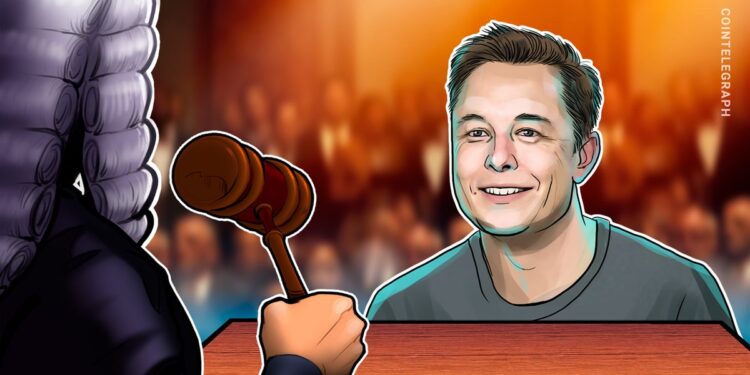Agentic AI challenge Eliza Labs has filed a lawsuit in opposition to Elon Musk’s xAI, claiming that the AI firm engaged in monopolistic practices meant to “deplatform” agentic AI launchpads.
The lawsuit claims that xAI tried to “extract” useful data, together with technical documentation and utilization figures associated to the development of Eliza Labs’ platform, to repeat its concepts earlier than “banishing” Eliza Labs from xAI.
Eliza Labs co-founder Shaw Walters argues within the lawsuit that the connection between the 2 corporations began off amicably, with xAI inviting Walters to share concepts. He additionally stated that they constructed on xAI’s utility programming interface (API) as a result of it was free. Walters added:
“The collaborative tone turned transactional, simply as X was launching Ani and a brand new model of Grok. Instantly, they had been demanding we pay $50,000 a month for an enterprise license — $600,000 a 12 months — or face authorized motion.
We had been already paying them over $20,000 yearly via numerous licenses and costs,” Walters continued. Cointelegraph reached out to Walters, however he declined to supply any additional remark.
The lawsuit highlights the litigious nature of the bogus intelligence sector, as authorized motion continues to pile up surrounding monopolistic practices, mental property rights, and authorized liabilities of AI service suppliers.
Associated: Eliza Labs launches auto.fun, a no-code AI spin on Pump.Fun
Lawsuits mount within the nascent AI sector
The AI business continues to be in its infancy, with key regulatory and authorized questions left unanswered concerning the nascent know-how.
These regulatory gray zones exist alongside the authorized points historically confronted by tech corporations, equivalent to trademark and patent infringement, making the AI sector a battleground ripe for litigation.
In February 2024, Elon Musk filed a lawsuit against Sam Altman, the founding father of OpenAI, and OpenAI itself, over the corporate’s proposal to develop into a for-profit enterprise.
Musk argued that the corporate deserted its authentic mission as a non-profit, open-source challenge that may create instruments for the general public good.
The lawsuit was withdrawn a number of months later, in June, however was withdrawn with out prejudice, that means that Musk can proceed to reintroduce the lawsuit till it’s dismissed or withdrawn with prejudice.
In July 2024, The New York Times sued OpenAI over the usage of copyrighted materials within the firm’s large-language mannequin (LLM), ChatGPT, demanding that detailed supply materials be supplied for AI-generated content material.
Xai, an Ethereum-focused gaming firm, sued Elon Musk’s xAI over trademark infringement in August 2025, alleging that the similarity of the emblems has confused shoppers and broken its enterprise.
Journal: Everybody hates GPT-5, AI shows social media can’t be fixed: AI Eye

















